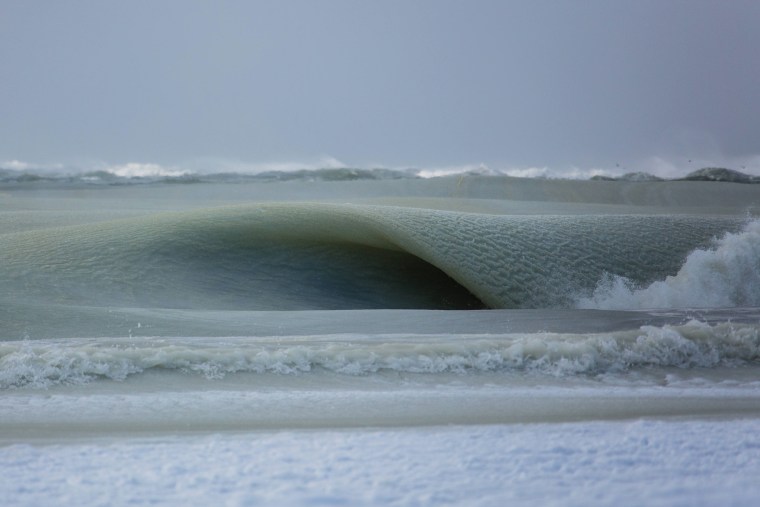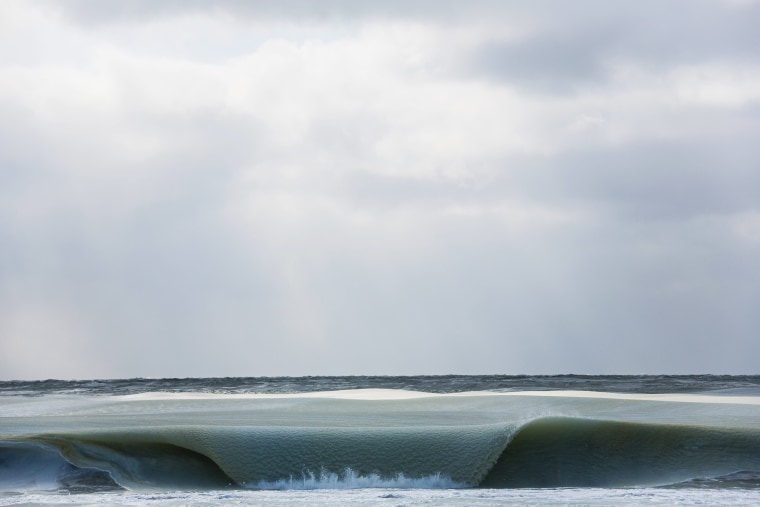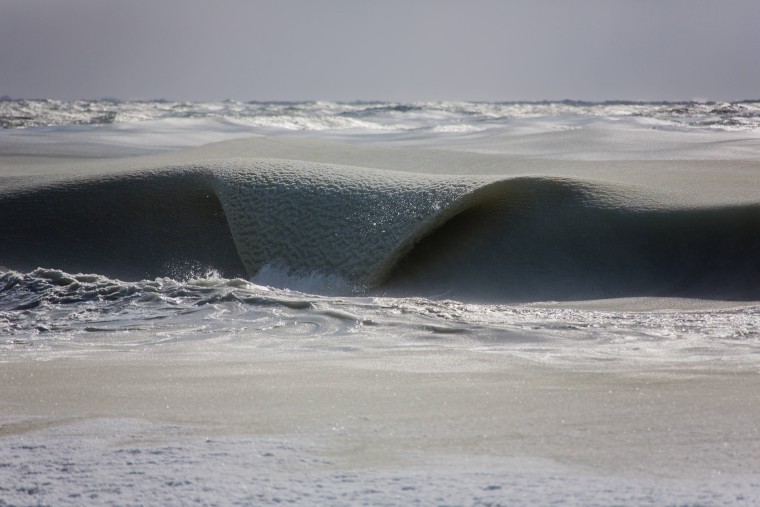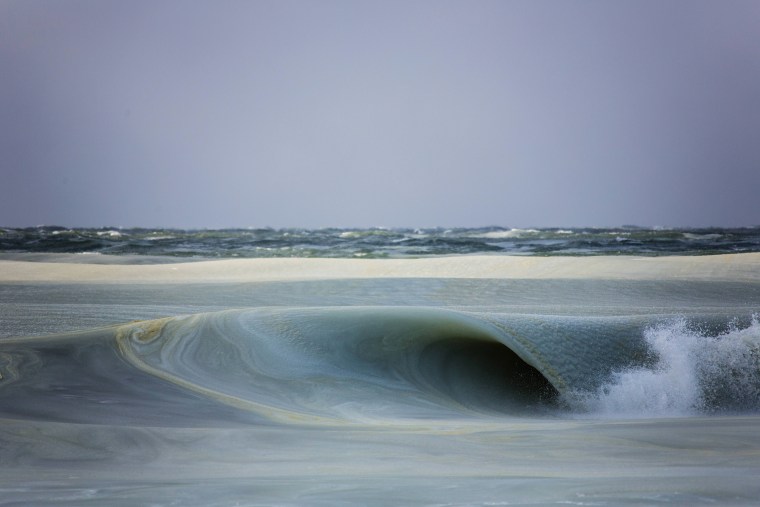If only photographer Jonathan Nimerfroh had a specially designed "slurfboard," he could be riding the semi-frozen waves rolling onto the shores of Nantucket. Instead, the intrepid photographer resorted snapping these shots while "absolutely freezing on the beach."
"When I pulled up to the beach I could see the horizon just look strange," he wrote, adding that the high temperature that day was a bone-chilling 19 degrees. "When I got to the top off the dunes I saw that beginning about 300 yards away from the shoreline the ocean was starting to freeze."
RELATED: Winter chill freezes Niagara Falls
Nimerfroh said he returned to the beach the next day to see if the waves had melted. Instead, the ice was creeping forward and, at the same distance where he'd seen slush waves previously, "the water had frozen solid and there were no waves at all," he said. "I've been asking all the fishermen and surfers I know if they have ever seen such a thing and they have all reported that this is a first, a result of it being the coldest winter we've had in 81 years."
And if you're wondering — yes, the ocean can freeze. The salinity of seawater just means that it freezes at a lower temperature. Fifteen percent or more of the ocean is always covered by sea ice, according to the National Oceanic and Atmospheric Administration.
Freshwater bodies like Niagara Falls and fountains have also been frozen into remarkable ice sculptures in light of record-breaking cold temperatures.
Boston — which has been buried under more than 100 inches of snow this season — has been working out where to put that mind-boggling quantity of precipitation. In addition to dropping truckloads of snow off at "snow farms," the city got the green light to start dumping excess snow in Boston Harbor. “It’s possible if you dump enough snow, especially with the record snowfall we’ve seen this season … that you could potentially noticeably change the temperature and salinity of the waters,” climate scientist Michael Mann told weather.com. However, he suspects the impact "is pretty modest.”



